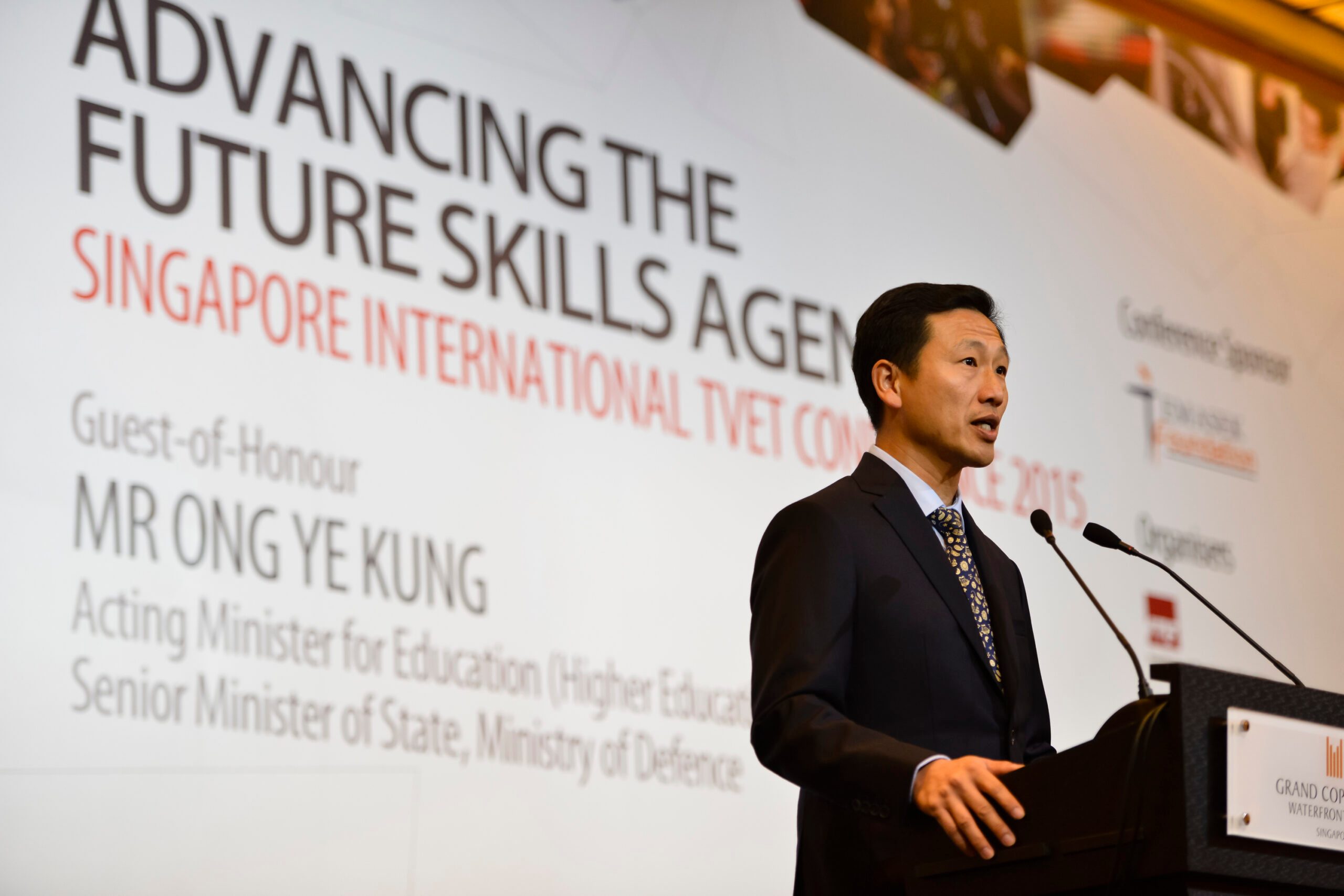SUMMARY
This is AI generated summarization, which may have errors. For context, always refer to the full article.

SINGAPORE – Here’s one of the secrets of Singapore, home to some of the best higher education institutions in Asia: its higher education sector has a “greater bias” toward aspirations of learners in its admission system.
On Tuesday, November 3, Singapore’s Acting Education Minister for Higher and Education Skills Ong Ye Kung opened here the 2015 International TVET (Technical Vocational Education and Training) Conference, attended by over 300 delegates from different countries.
Here, education frameworks are already in place encouraging students to choose courses based on personal aspirations, and not just salaries and perceived status of a profession.
Ong revealed that approximately 7.5% of Singapore’s full-time Polytechnic students are admitted on a discretionary basis, while universities can admit up to 10% of their intake on a discretionary basis.
With discretionary admission, other factors are considered aside from a student’s grades.
“I believe to excel and accomplish something innovative and extraordinary, one must have deep skills sets hardwired into your anatomy, so your movements and responses are visceral and instinctive,” he said in his opening address.
He added: “In Chinese, when you practice something hard enough, you acquire Xin De, that is, something acquired through the heart, executed through the soul. That’s how high you can go in a vocation.”
It’s even an advantage for the young nation that it does not have “deep-seated historical biases or baggage” toward vocations.
“We can combine the rigor of European vocational training system and the pragmatic nature of the US employment market to develop our own system – one in which skills are not subordinate to academic knowledge, one in which both are needed for our society and economy to excel,” Ong said.
Cultural shift
For years, Singapore has heavily invested in human capital.
The country now ranks second in the World Economic Forum’s higher education rankings and ranked 9th in the United Nations Human Development Index with a average of 3.3% of GDP spent on education.
It has also carved out a niche for itself in recent years as a destination for higher learning.
But on Tuesday, Ong spoke of an important tension present in higher education: balancing the collective good and individuals’ aspirations.
“The two are not inherently contradictory – allowing individuals to pursue their passions and interests can lead to, and is perhaps the only way to realize, the collective good,” he added.
Citing a 2013 Gallup survey, Ong said workers are more likely to be engaged if they are in jobs that make good use of their skills and knowledge.
In turn, engaged employees are enthusiastic and dedicated in contributing to their workplace. These employees are more likely to drive innovation and growth.
Without compromising standards, Ong encouraged educators and employers to start a cultural shift in which interests and aspirations of individuals are not disregarded.
This is already happening in Singapore, where a diversified economy with good jobs across many fields gives a young person a good chance to find work he is passionate about.
But more has to be done, not only in Singapore but also globally.
“We ourselves find meaning in a vocation that we have chosen that matches our interests, talents, and personality. The challenge is to develop a system that best matches vocation and aspirations, to create a marketplace for this matching, to build the infrastructure that allows us to work through the highest forms of our vocations,” Ong said.
This, according to the minister, will not only create many paths to success but will also broaden the definition of success in society, beyond academic credentials and salaries. – Rappler.com
Add a comment
How does this make you feel?
There are no comments yet. Add your comment to start the conversation.